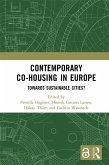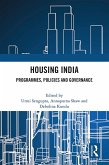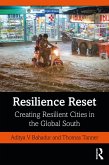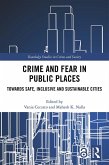Co-housing is often lauded as a more sustainable way of living. The primary aim of this book is to critically explore co-housing in the context of wider social, economic, political and environmental developments. This volume fills a gap in the literature by contextualising co-housing and related housing forms. With focus on Denmark, Sweden, Hamburg and Barcelona, the book presents general analyses of co-housing in these contexts and provides specific discussions of co-housing in relation to local government, urban activism, family life, spatial logics and socio-ecology.
This book will be of interest to students and researchers in a broad range of social-scientific fields concerned with housing, urban development and sustainability, as well as to planners, decision-makers and activists.
Dieser Download kann aus rechtlichen Gründen nur mit Rechnungsadresse in A, B, BG, CY, CZ, D, DK, EW, E, FIN, F, GR, HR, H, IRL, I, LT, L, LR, M, NL, PL, P, R, S, SLO, SK ausgeliefert werden.









